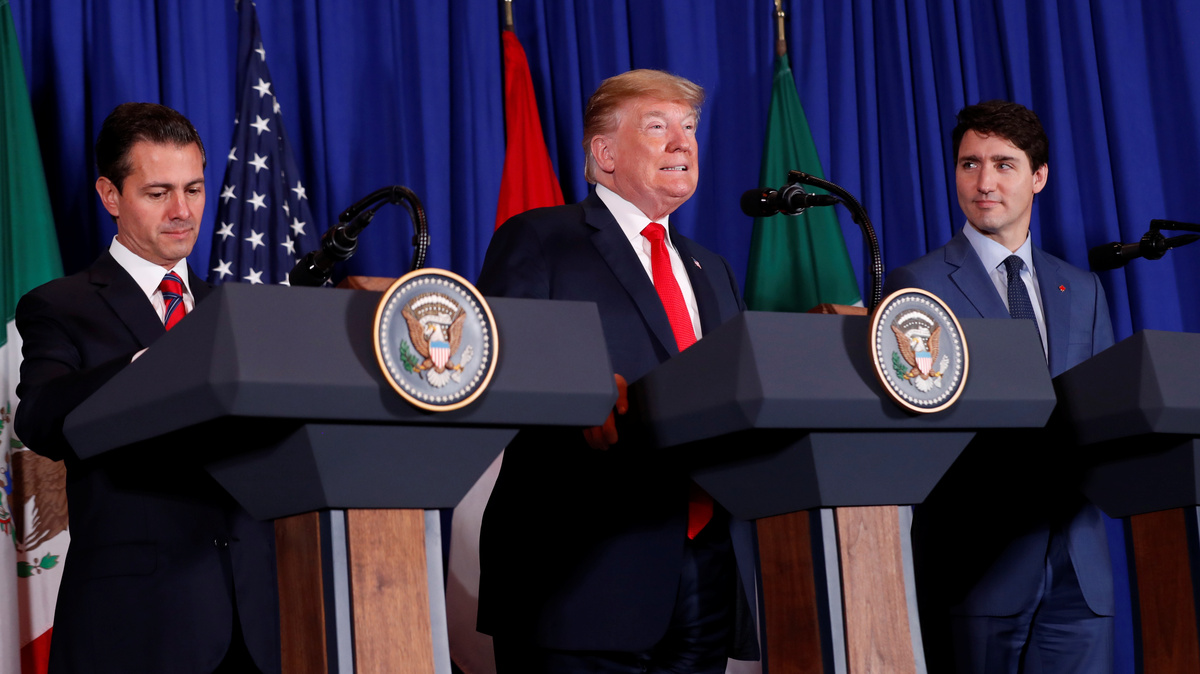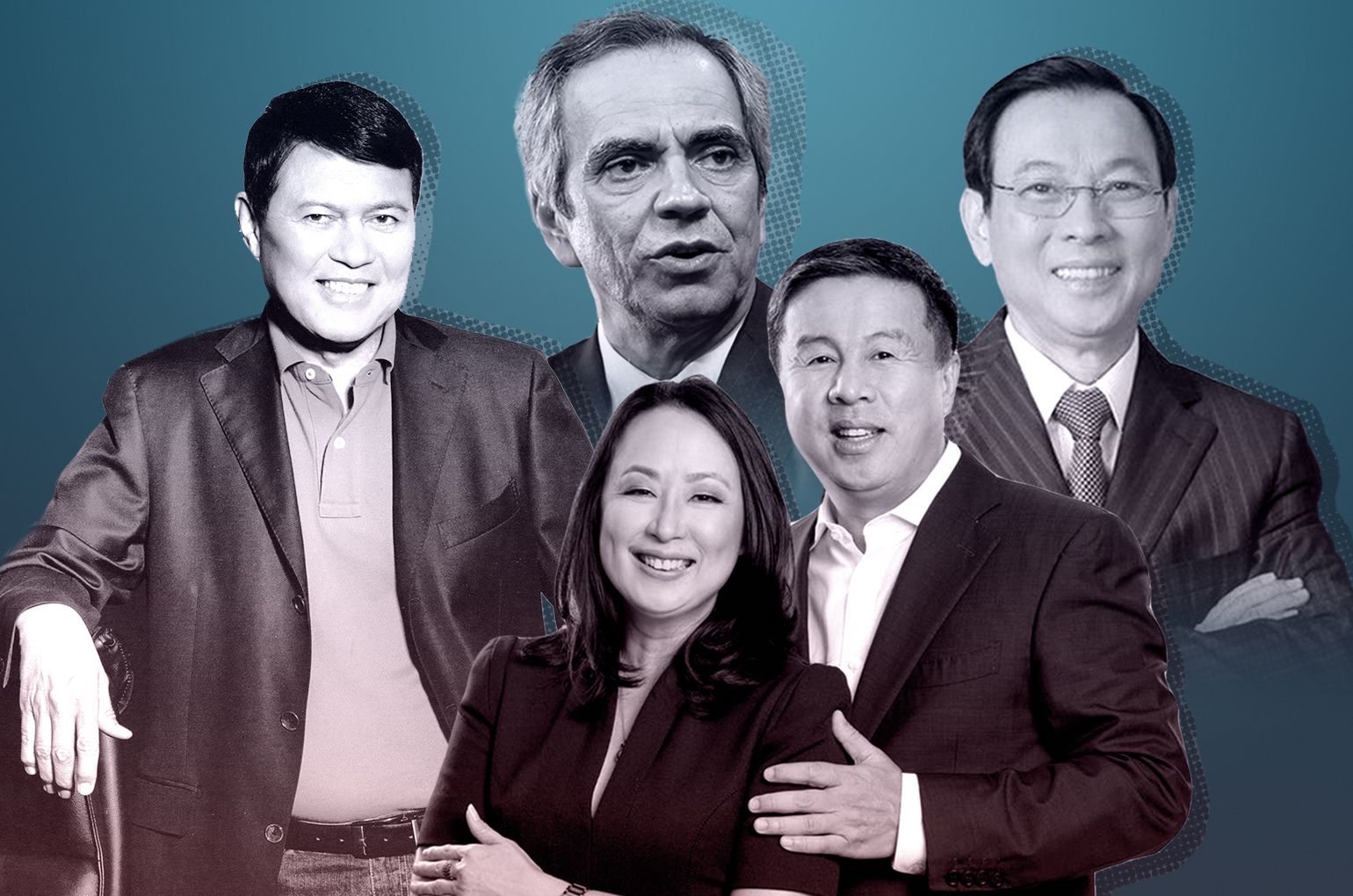Meta Under Trump: Zuckerberg's Challenges And Opportunities

Table of Contents
The Challenges of Content Moderation and Political Speech
The Trump era amplified existing tensions surrounding content moderation on social media platforms. Meta found itself caught in a crossfire, constantly battling accusations of both censorship and enabling the spread of misinformation.
Navigating Free Speech vs. Misinformation:
The delicate balance between protecting free speech and combating the proliferation of misinformation became acutely challenging. The highly polarized political climate exacerbated this issue.
- Examples: Controversial posts by President Trump himself, often pushing the boundaries of acceptable speech, presented Meta with difficult moderation decisions. Similarly, the spread of conspiracy theories and disinformation campaigns by his supporters posed a significant challenge.
- Enforcement Challenges: Defining and enforcing consistent policies proved incredibly difficult, leading to criticism from both the left (accusations of insufficient action against right-wing extremism) and the right (accusations of censorship and bias).
- The Ongoing Debate: The debate over what constitutes "harmful content" and the appropriate response remains a significant and complex challenge for social media platforms. The lines between legitimate political expression and dangerous misinformation often blurred.
Dealing with Political Advertising and Manipulation:
The 2016 and 2020 US elections highlighted the vulnerability of social media platforms to foreign interference and manipulation through political advertising. Meta faced intense scrutiny for its role in these events.
- Controversial Ads: Numerous controversies emerged regarding the targeting and content of political advertisements, raising concerns about the influence of foreign actors and the potential for voter manipulation.
- Policy Changes: Meta implemented various changes to its advertising policies, including increased transparency requirements for political ads and enhanced efforts to detect and prevent foreign interference. However, the effectiveness of these measures remained a subject of debate.
- Accountability Issues: The question of accountability for the content and influence of political advertising on its platforms continues to be a major point of contention, with calls for greater transparency and stricter regulations.
The Opportunities for Growth and Innovation Under Scrutiny
While the Trump era presented significant challenges, it also created opportunities for Meta to strengthen its position and adapt to a changing regulatory landscape.
Strengthening Trust and Transparency:
The controversies surrounding Meta during the Trump years forced the company to prioritize improving its image, building user trust, and enhancing the transparency of its operations.
- Transparency Initiatives: Meta launched several initiatives aimed at increasing transparency in its content moderation policies, algorithms, and data handling practices.
- Combating Fake News: The company invested heavily in efforts to detect and combat the spread of fake news and misinformation, acknowledging the critical role it plays in shaping public discourse.
- Data Privacy Concerns: The need to address ongoing data privacy concerns, especially in light of the Cambridge Analytica scandal, became paramount.
Adapting to Regulatory Changes and Political Pressure:
Increased regulatory scrutiny and political pressure from both sides of the aisle during the Trump administration pushed Meta to adapt its strategies and policies.
- Regulatory Investigations: Meta faced numerous regulatory investigations and lawsuits concerning antitrust issues, data privacy, and content moderation.
- Lobbying and Public Relations: The company adjusted its approach to lobbying and public relations, navigating the complex political landscape and managing its reputation in the face of criticism.
- Policy Evolution: The pressure from all sides resulted in a significant evolution of Meta's content moderation policies, though the effectiveness and fairness of these changes continue to be debated.
Conclusion:
The period of "Meta Under Trump" was a defining moment for the company. Zuckerberg and Meta faced significant challenges related to content moderation, misinformation, political advertising, and regulatory scrutiny. However, these challenges also created opportunities to strengthen trust, enhance transparency, and adapt to a rapidly evolving political and technological landscape. The long-term implications of this era are still unfolding, impacting Meta's relationship with users, governments, and the broader social media ecosystem. To fully understand the complex legacy of Meta under Trump, further exploration is crucial. We encourage you to delve deeper into the issues surrounding Meta's operations during this period by researching relevant articles, reports, and ongoing discussions about the responsibilities of social media platforms in a polarized political climate. Continue the conversation: how did the era of "Meta Under Trump" shape the future of social media?

Featured Posts
-
 Trump And Britain A New Trade Agreement On The Horizon
May 10, 2025
Trump And Britain A New Trade Agreement On The Horizon
May 10, 2025 -
 How Luis Enrique Secured Psgs Ligue 1 Championship
May 10, 2025
How Luis Enrique Secured Psgs Ligue 1 Championship
May 10, 2025 -
 French Europe Minister Promotes Nuclear Energy Sharing
May 10, 2025
French Europe Minister Promotes Nuclear Energy Sharing
May 10, 2025 -
 Britannian Kuninkaallinen Perimysjaerjestys Ajankohtainen Lista
May 10, 2025
Britannian Kuninkaallinen Perimysjaerjestys Ajankohtainen Lista
May 10, 2025 -
 Analysis Trumps Trade War Costs Top 10 Billionaires 174 Billion
May 10, 2025
Analysis Trumps Trade War Costs Top 10 Billionaires 174 Billion
May 10, 2025
